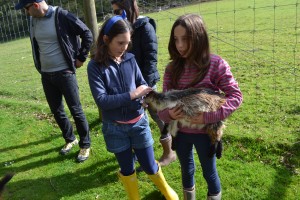
What does the word ‘family’ mean to you? It can mean many things in our society. Some define family as a mother, a father and one or more children. For others, there don’t need to be children in the home for there to be a family. Where there are children, about three quarters of the parents will be married to each other.
In 2013 the Office of National Statistics, which is a government body which takes surveys on all manner of topics to help the government make policy (rules under which we all live), found that there were 18.2 million people living in this type of family. Many more of us have families which have a different make-up. For the purpose of the survey, a family is defined as people living in the same household.
However, as many of you will know, there are other ways in which we describe our family. There are children who have two parents of the same gender, there are children who have only one parent with whom they live, other children have guardians and live with aunts, uncles or grandparents.
Families can be made up of many different groups. Some households may have a nanny or au pair who is considered a part of the family, and other households may have several generations living in the same home making for a larger family unit.
Family can also mean the people you choose to be in your life; your best friends, your favourite teachers or adults who you are very close to but who may not be blood-related, like godparents or ‘adopted’ aunts and uncles. I have many children in my life whom I love dearly and they are a part of my family. Not all of them are blood relations to me but that makes no difference to how much I love them.
My family has changed throughout my life too. I discovered I had an older half-brother only two years ago, and now he and his wife and children have become much-loved members of my extended family. When I got married I gained a whole new bunch of relatives. I also recently traced some of my family tree, all the way back to the 1700s. That gave me a new understanding of my family history, the type of jobs we used to do and the circumstances where I have come from (mostly grocers, farm-labourers and miners).
In other countries ‘family’ is very different to how we may understand it. Nomad families such as the Romany people of Eastern Europe, the aboriginal tribes of Australia, or the Nenetsi Samoyed people of Siberia, do not have households which remain in one place. They travel across regions in large groups and the concept of family is larger than simply two parents and children. Extended family members are included in the movable household such as grandparents, aunts, uncles and cousins. Family households may also include community members who are not blood-related, such as friends.
In some cultures and countries such as the tribes of Somalia in Africa, family extends across vast time periods and geographical areas. The duties of family members to each other to be hospitable and supportive financially and personally is a strong tie. For example, if a family member is in a country a long way away from their immediate family, any person living in that country who can trace their ancestry back to the same family root will have a duty to help support the newcomer. If they don’t, it can have a very bad effect on their reputation and that of their immediate relatives (those they live with and/or are closely related).
There are people of many cultural heritages living in the UK, and this means the experience of family varies a lot within our country. The definition used to make policy is not the same as the experience we may have in our real life. Family can be immediate and extended, blood-related or chosen.
Family is whatever you make it and whatever you want it to be.
Tina Price-Johnson is a Paralegal and Litigation Assistant by day, and Freelance Writer/Poet by night and weekend. She loves history, social studies and biographies, and enjoys writing about almost anything. She lives in London and travels in the UK and abroad whenever she can, and can usually be found wandering around crumbling ruins, wherever they may be.



